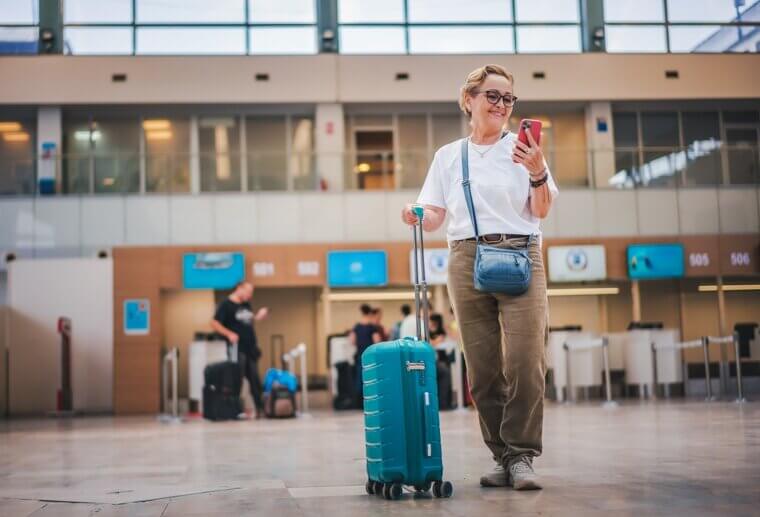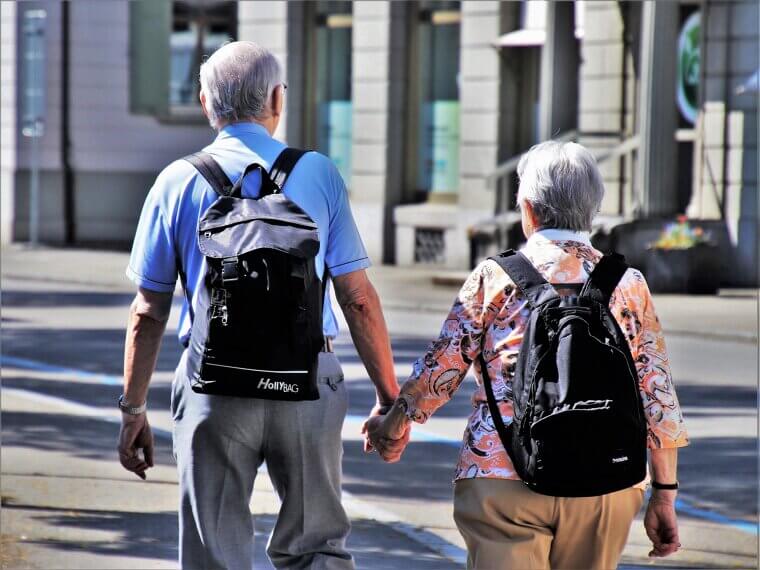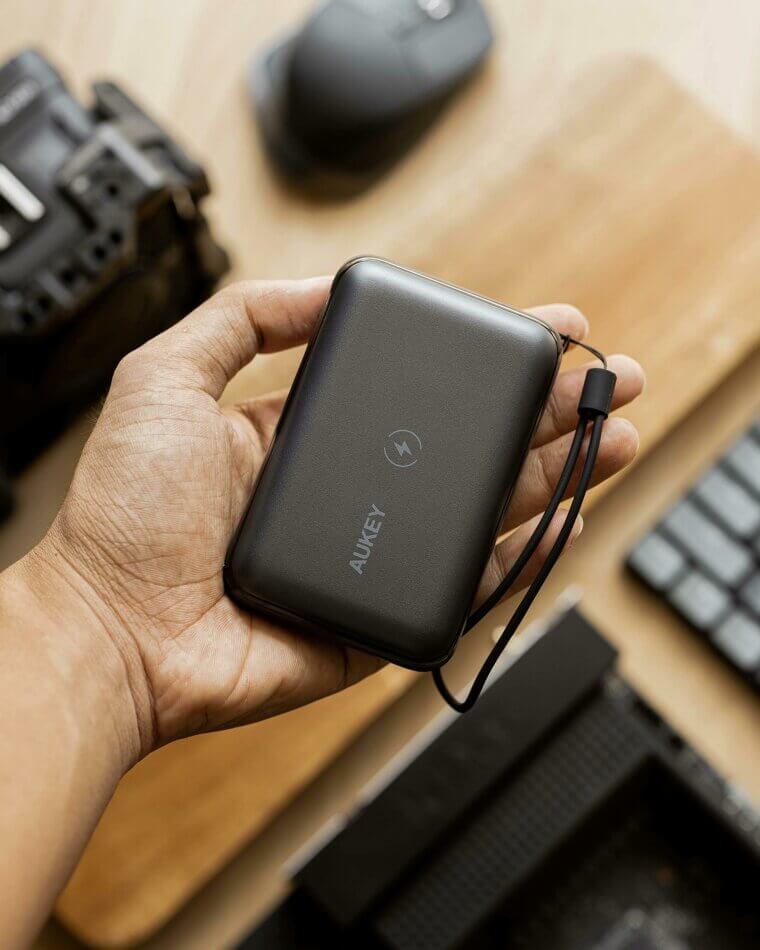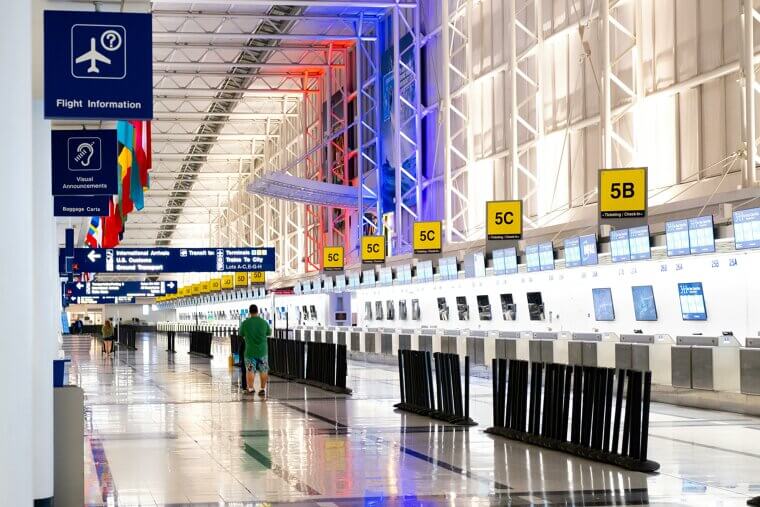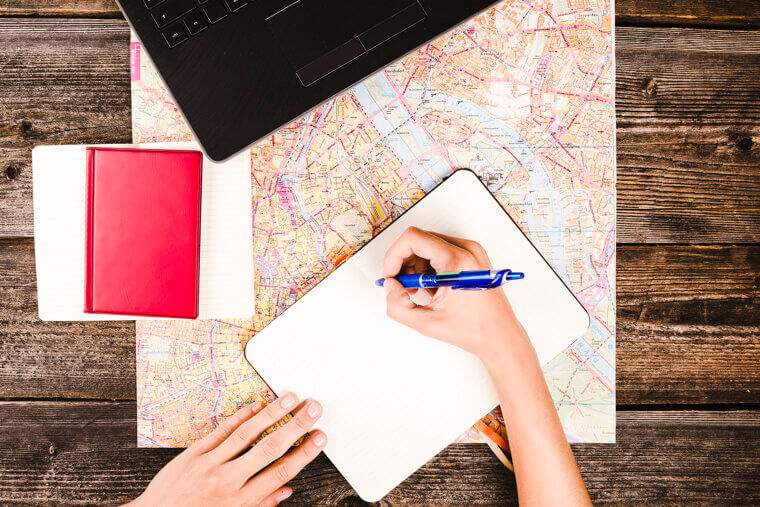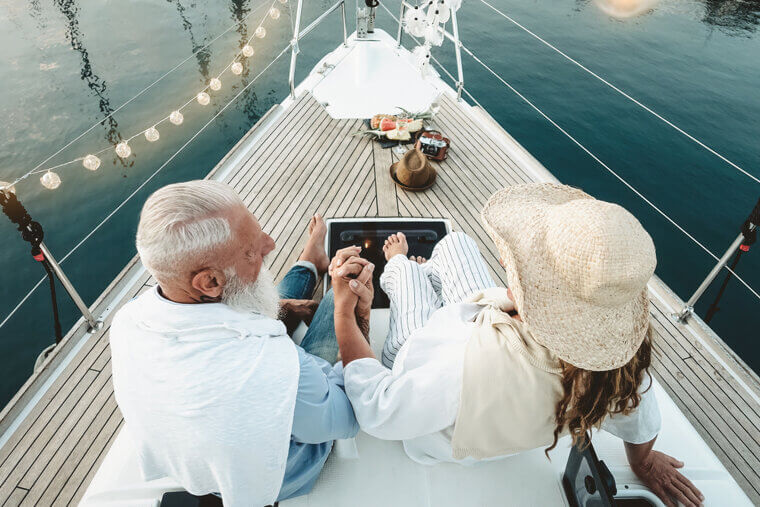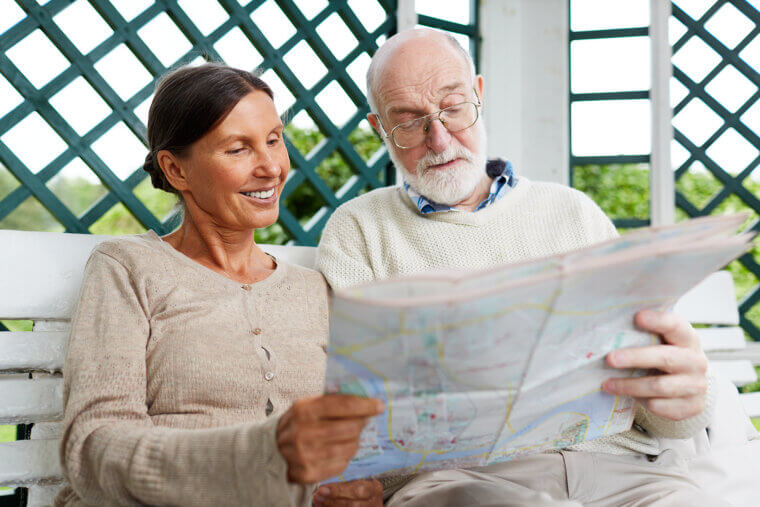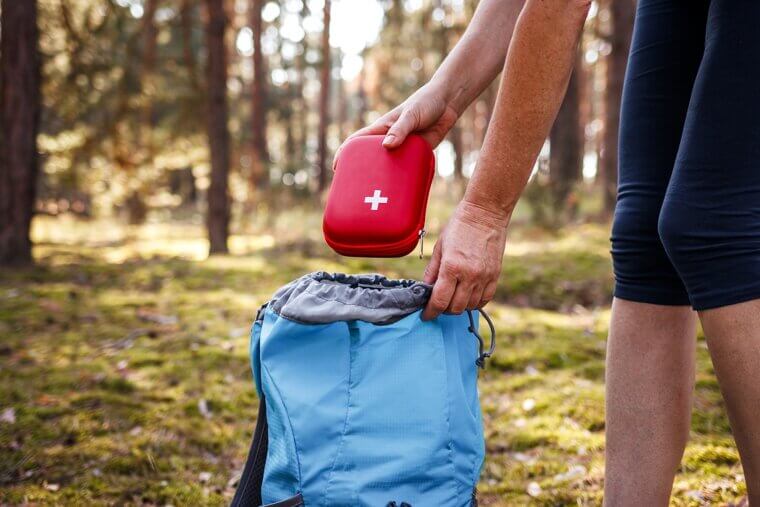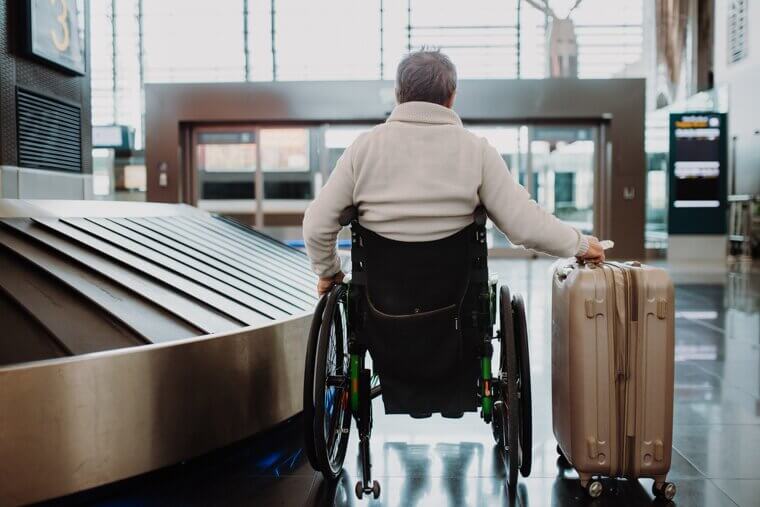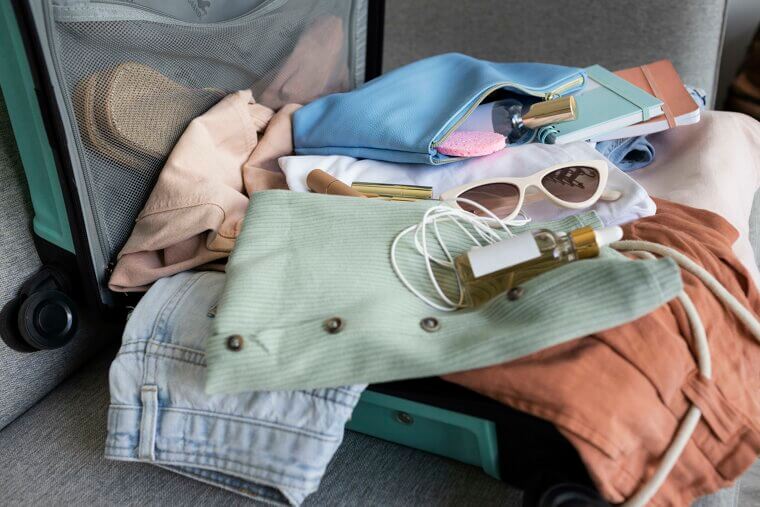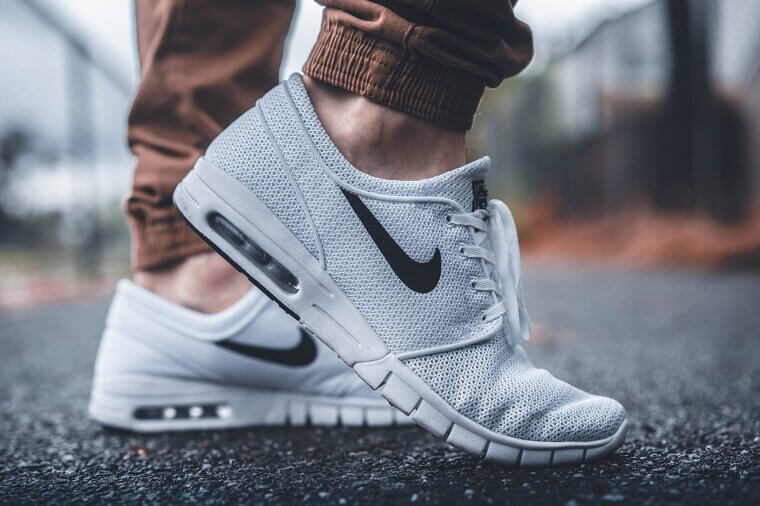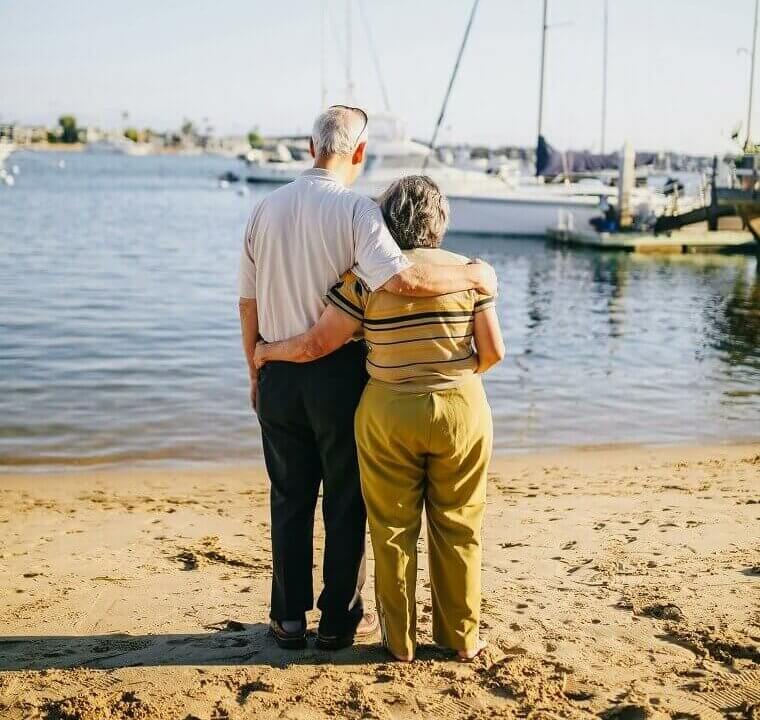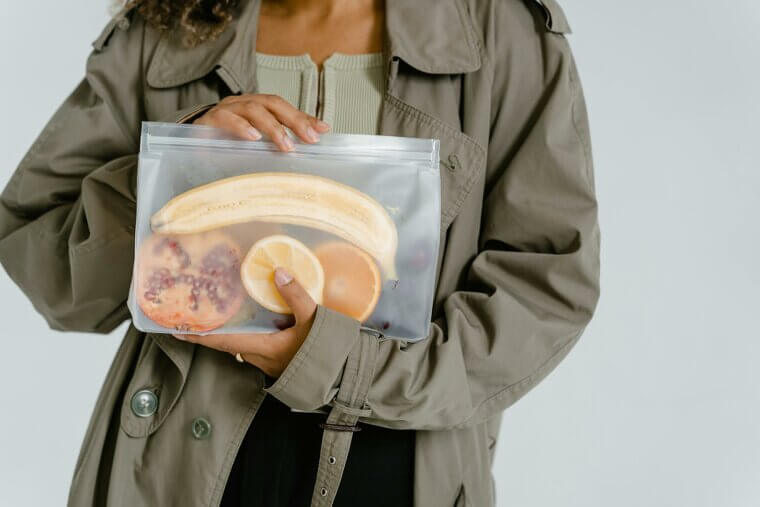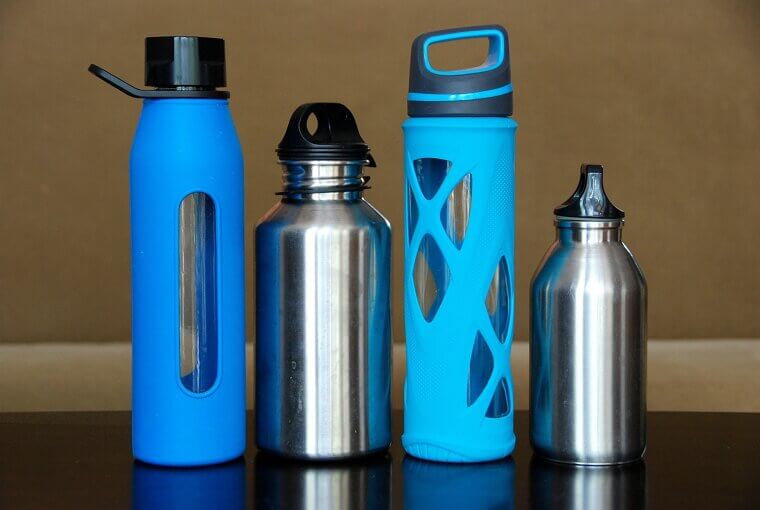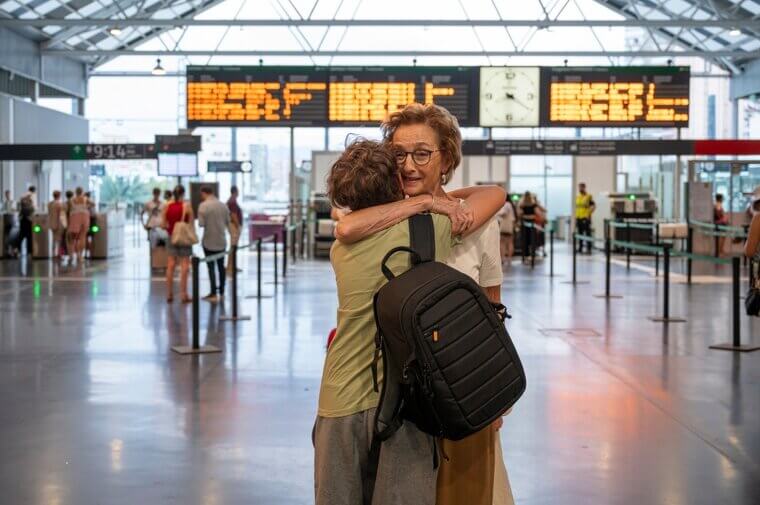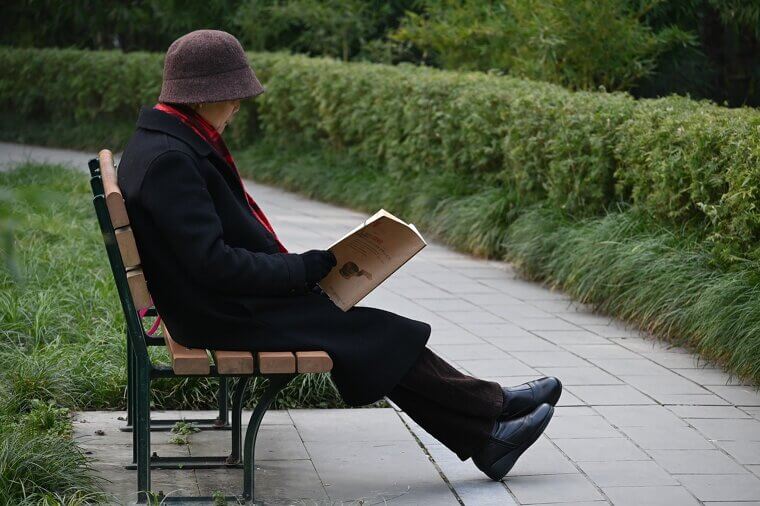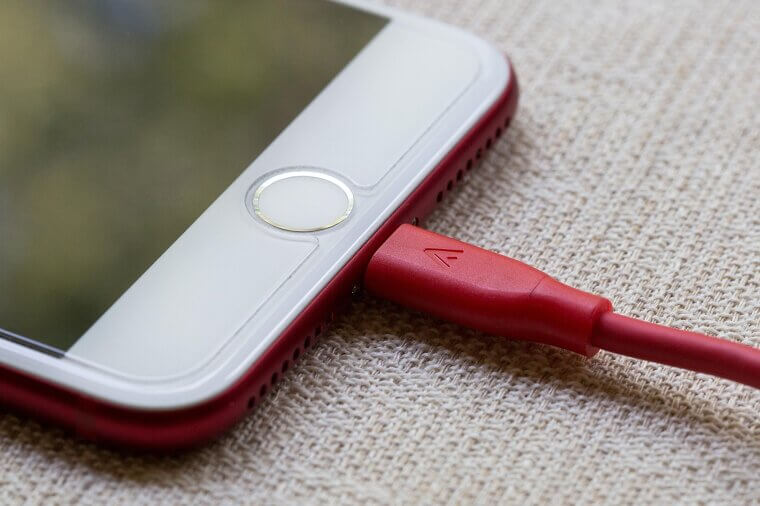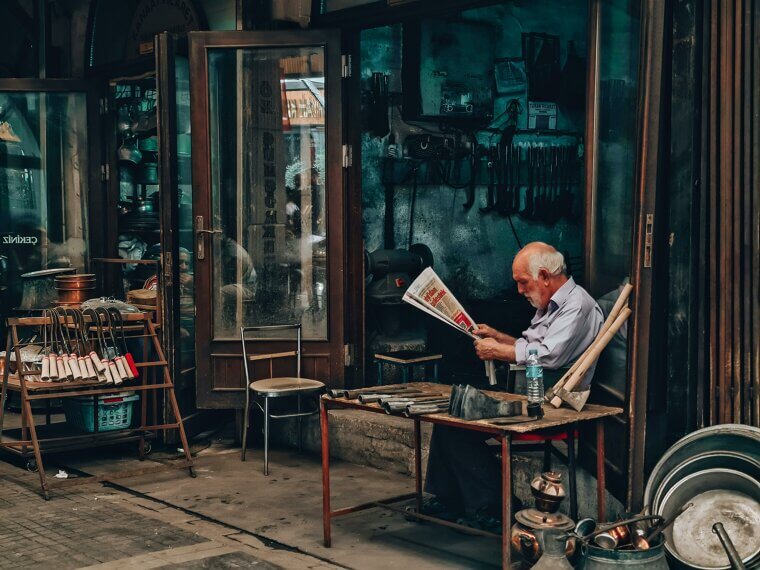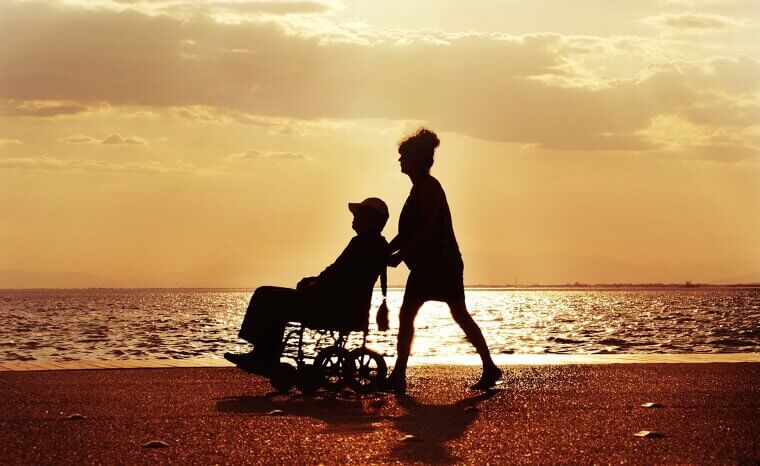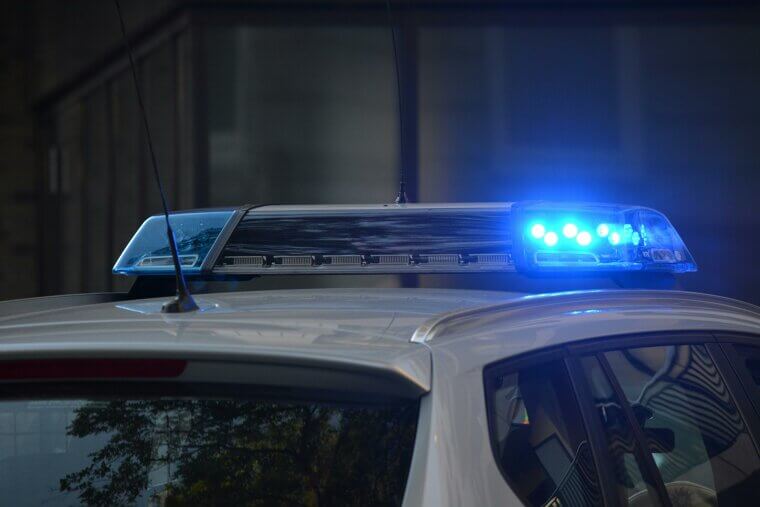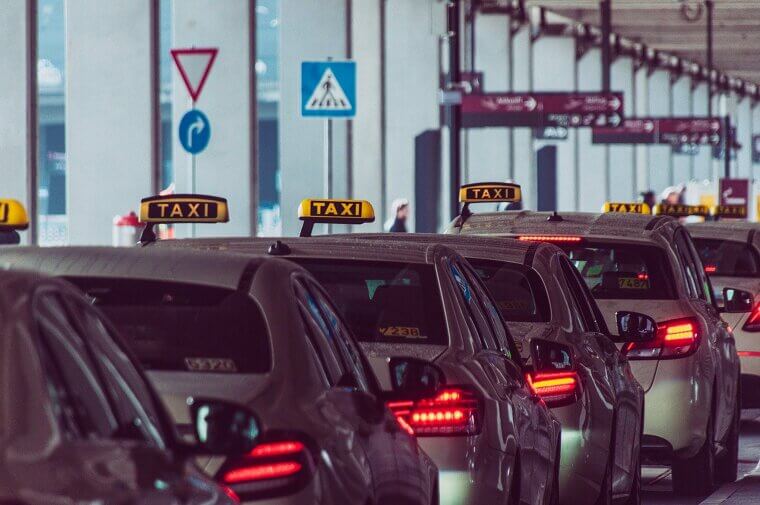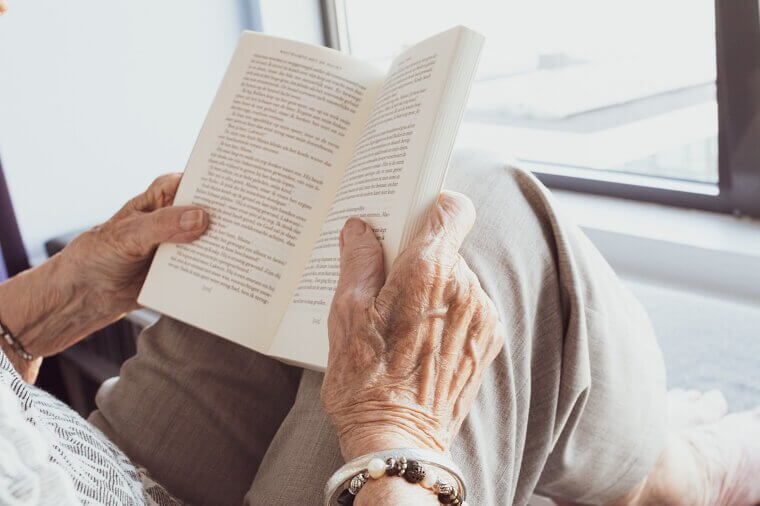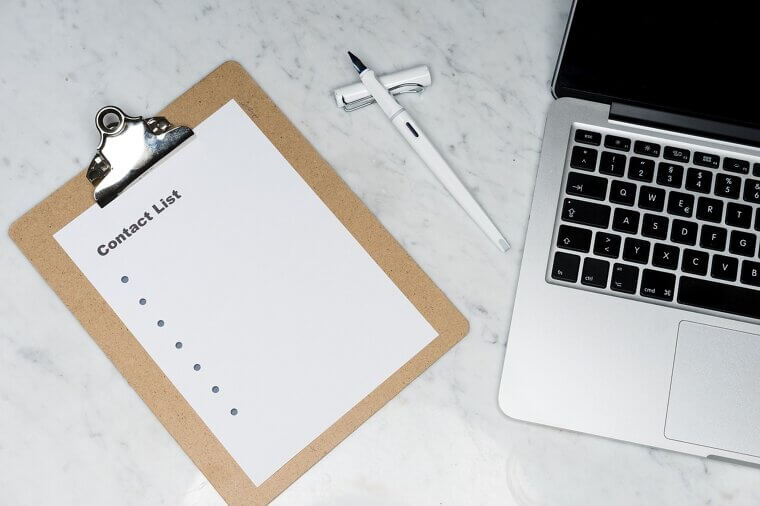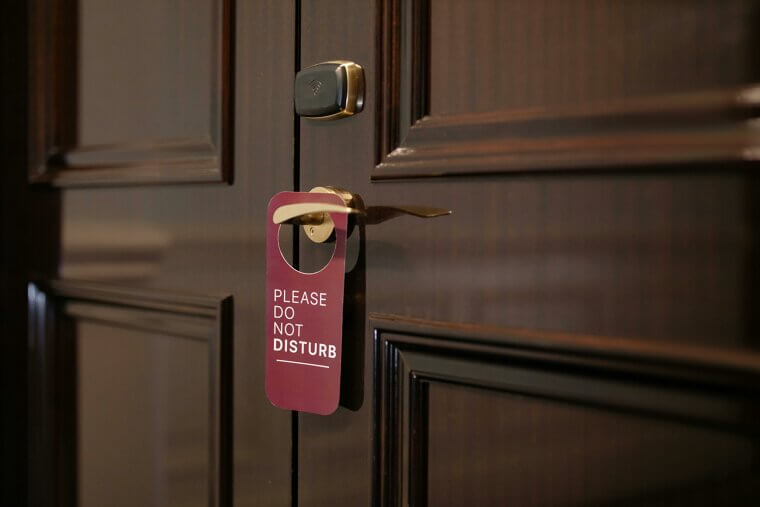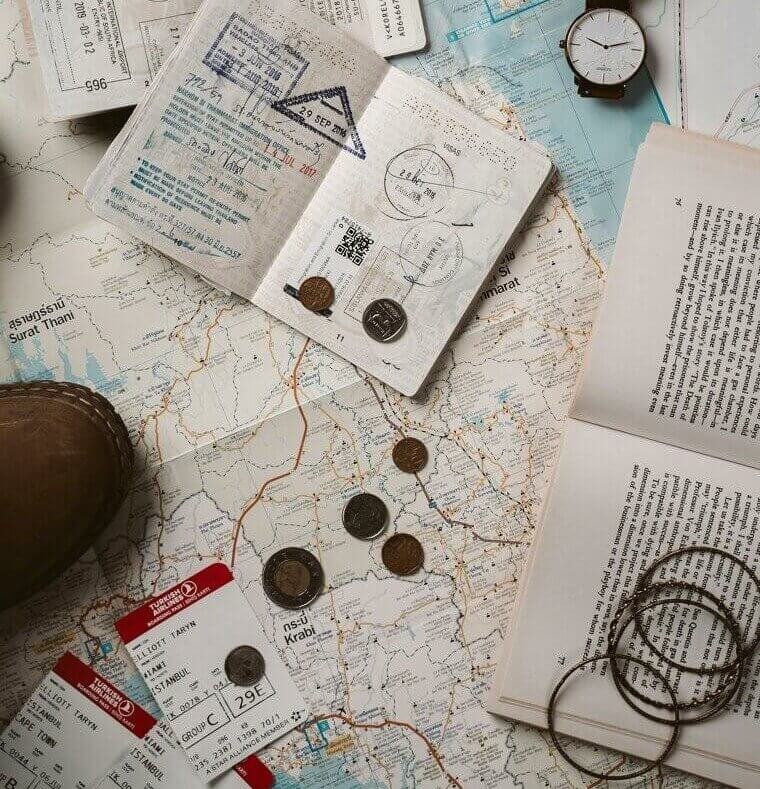Label Your Luggage
It can be tricky to spot your luggage at the airport, so it’s a good idea to use a sturdy tag with your name, phone number, and address to avoid confusion. You can also add a colorful ribbon or strap to identify your bag easily.
Dress in Layers
It is far easier to dress in comfortable layers while traveling. Layers are easy to add or remove, keeping you warm, cool, and dry whether you’re on a plane, a bus, or a train or exploring outdoors.
A Must-Have Power Bank
A power bank is a must-have travel accessory for keeping your phone and other devices charged during your trip. It’s especially useful for long flights, road trips, or when you can’t find a nearby outlet.
Pre-Check Where Necessary
Pre-check where you can by researching your destination, transportation, and accommodations ahead of time. This will help you avoid any surprises, find accessible options, and save you some time as you enjoy a smoother trip.
Visit the Doctor
It’s always a good idea to check in with your doctor to ensure you’re fit to travel and to discuss any vaccinations you may need. This is also the best time to ask for any medications that you might need on your trip.
Organize Your Travel Documents
Passports, IDs, travel itineraries, and other travel documents should be stored in a secure, easy-to-access place. You can purchase a travel wallet that has loads of compartments to store all your travel documents neatly.
Enjoy Senior Discounts
Take advantage of senior discounts whenever possible. They are, after all, there for a reason. Attractions, restaurants, and hotels offer special rates for seniors, so don’t be shy to ask about these discounts to save a bit of money where you can.
Opt for Travel Insurance
Travel insurance will help you cover medical emergencies, cancellations, and any other unexpected events that might crop up on your trip. Check with the airline, your credit card company, and your travel agent for the best options.
Choose a Senior-Friendly Destination
Choose destinations with senior-friendly amenities, like accessible transportation, flat walking paths, and nearby medical facilities. Look for places offering cultural experiences, guided tours, and relaxing activities to suit your pace and comfort for the ultimate relaxing vacation.
Plan Ahead
Book your hotels, flights, and any other travel arrangements well in advance to avoid last-minute stress. This includes arranging travel insurance and booking a taxi to and from the airport to make your trip stress-free.
Make Copies of Your Itinerary
Make copies of your itinerary, hotel booking, and flight bookings and share these with a friend or family member. It is always a good idea to share your travel plans with someone in the event of an emergency.
Know Your Location
Do a bit of research about your destination, learning the locations of nearby hospitals or clinics. It helps to know where these facilities are, especially if you are traveling to a new destination for the first time.
Pack a First-Aid Kit
Keep a small first-aid kit of essentials in your travel bag. This should include painkillers, band-aids, motion sickness tablets, and any other essentials that you might need on hand in case of an emergency or if you start feeling ill.
Pack Your Medications
Pack all your necessary medications in their original containers and include a list of your prescriptions. Bring extra doses in case of delays and keep them in your carry-on bag for easy access on your travels.
Check Mobility Options if Necessary
Check that your vacation destination offers wheelchairs, elevators, or other accessibility aids if you need them. Most hotels offer free mobility aids to guests who need them, while others charge a small fee for their use.
Pack Light
Choose clothes that can be mixed and matched to avoid overpacking and carrying heavy luggage. Check the weather and plan your outfits accordingly. Travel checklists can also help you pack what you need so you don't overdo it.
Choose Comfortable Shoes
Choose shoes suitable for walking and standing for long periods. Sandals, tennis shoes, and comfortable trainers are great options that will keep you comfortable for longer. Remember to pack extra socks in your luggage, too.
Use Compression Socks
Compression socks are ideal for improving circulation during long flights and road trips. They help prevent blood clots and keep your legs feeling comfortable and supported, making them a must for longer flights to your vacation destination.
Bring Snacks
Airline food can be pretty expensive, so you might want to pack a few snacks in a ziploc bag to snack on on the plane. Crisps, jelly sweets or gums, and dried fruits are tasty and will keep you satisfied.
Stay Hydrated
Hydration is key while traveling, so it might be a good idea to get a reusable water bottle to stay hydrated. Remember to check the airline's policy on drinks containers and what you can and cannot bring onto the flight.
Bring a Book or Two
Bring a book or two to enjoy during your travels. This is perfect for passing time on flights, waiting in lines, or relaxing by the pool on vacation. If you don’t like reading, try crossword or puzzle books.
Compile an Emergency Card
Create an emergency card with your name, contact details, medical conditions, allergies, and emergency contact numbers. Keep it in your wallet or bag for quick access in those unexpected situations. It’s a simple safety step that can really help in an emergency.
Arrive Early
Arrive early at airports, train stations, or bus terminals to avoid stress on your vacation. This gives you extra time to handle unexpected details, find your gate, and navigate security checks comfortably and without rushing.
Request Assistance
Don’t hesitate to ask for assistance if you need it. Many airports, hotels, and attractions offer services like wheelchair support or help with navigating. Asking for help makes your travels smoother and reduces your stress.
Take Breaks
Take regular breaks while traveling to rest and recharge. Whether you’re walking, sightseeing, or flying, short breaks can help reduce travel fatigue and keep you feeling refreshed, making your trip far less overwhelming and tiring.
Stay Alert
It’s so important to stay alert during your travels by being aware of your surroundings. Keep an eye on your belongings, watch out for potential hazards, and stay aware in unfamiliar places to ensure your safety and peace of mind on your trip.
Keep Valuables Safe
Keep your valuables safe by using a secure, easily accessible travel pouch or wallet. Avoid carrying large amounts of cash, and consider using the hotel safe or locking your luggage for the more important items like passports and credit cards.
Stay Connected
Stay connected with your loved ones back home by keeping your phone charged and with you at all times. It is also a good idea to share your travel itinerary with family or friends and check in regularly to let them know that you are okay and safe.
Travel at Your Own Pace
There is absolutely no reason to rush around while on vacation. Take it slow and plan activities with plenty of breaks in between. Take some time to relax, enjoy the sights, and listen to your body when it needs rest.
Choose Accessible Accommodations
If you struggle with mobility, choose accommodations with features like ramps, elevators, and wide doorways to make your stay more comfortable. Your room should also have easy access to bathrooms and a place to rest.
Prioritize Your Safety
Your safety should be your first priority, so stay aware of your surroundings, secure your belongings, and follow the local safety guidelines. Avoid more risky areas, and make sure someone knows where you are and what your travel plans are.
Learn a Few Key Phrases
Knowing the language where you are going is always useful. Learn a few key phrases in the local language to help you communicate better. Phrases like “Hello,” “Thank you,” and “Where is the bathroom?” can make your trip more enjoyable.
Use Trusted Transport
Always use trusted transport options like reputable taxi services, popular ride-sharing apps, and public transportation. This helps ensure your safety and reliability and also avoids scams and other potentially risky situations. Your safety is a priority.
Travel and Sleep
Rest is so important during travel to recharge your energy. Take breaks, get a good night’s sleep, and listen to your body when it needs a break. A well-rested traveler is a happy and healthy traveler that’s ready for any adventure.
Avoid Overexerting Yourself
Take things slow to avoid overexerting yourself. As exciting as it sounds, don’t try to do everything in one day; instead, space out activities. Take breaks when you need them to prevent fatigue and truly enjoy your trip.
Keep Emergency Contacts on Hand
Always keep emergency contacts on hand, like family members, doctors, or local emergency numbers. Write them down or save them on your phone where you can easily reach help if you need it on your trip.
Plan Recovery Time
Be sure to plan some time to recover once you are home. Jetlag is a very common occurrence when traveling, so be sure to set aside some time to just rest and recover from your journey. It might be useful to set aside a day for this.
Review Your Trip
Just like you would review a project once it’s completed, review your trip and see how you can improve on your next one. Look at things like how much you spent, any travel snags you may have come across, and what you can do differently.
Share Experiences
Everyone loves a holiday, and for those who don’t go on one often, it is always great to live vicariously through others. Share your vacation experience with friends and loved ones through photos and stories. Who knows, you might just inspire someone to book their vacation, too!
Plan the Next Trip
Once the travel bug bites, there is no stopping it. Now that you have traveled once, you will want to travel again. Plan your next trip, keeping in mind all the tips we have shared here, and enjoy another vacation away from the stress of everyday life.

